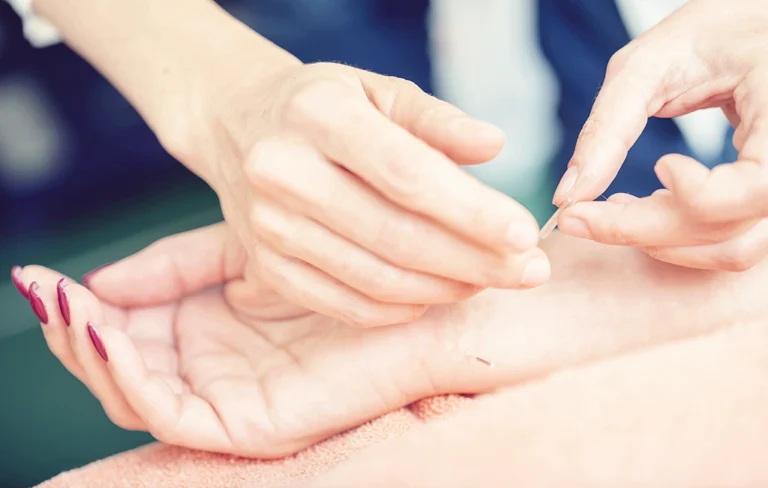Hello everyone!
Today, I want to explore a topic that’s been gaining attention in both the medical and wellness communities—using acupuncture to support those with ADHD (Attention Deficit Hyperactivity Disorder). With the ongoing shortage of ADHD medication in the UK, many individuals are looking for alternative or complementary treatments to manage symptoms. According to a recent article from the BBC, this shortage is affecting students in particular, with some being “set up to fail” due to the lack of access to necessary medication (BBC article).
While research on acupuncture for ADHD is still evolving, there are some interesting findings that I’d love to share with you. As with all complementary therapies, it’s essential to consult your healthcare provider before making any changes to your treatment plan.
What is ADHD?
Attention Deficit Hyperactivity Disorder most commonly known as ADHD is a neurodevelopmental condition that affects both children and adults. It is characterised by symptoms such as inattention, hyperactivity, and impulsivity, which can interfere with daily life, work, or school performance.
Individuals with ADHD often struggle with focus, organisation, and regulating their behaviour. Treatment options typically include medication, behavioural therapy, or a combination of both, though complementary therapies like acupuncture are also being explored.
The Science Behind Acupuncture for ADHD
ADHD is characterised by symptoms like hyperactivity, inattention, and impulsivity, which can significantly impact daily life. Acupuncture, especially auricular acupuncture (focused on points in the ear), has been explored as a way to help manage these symptoms. Let’s look at what the research tells us:
- Small Studies Show Promising Results
Several small-scale studies have explored the effects of acupuncture on ADHD. For example, a 2015 study published in the Journal of Alternative and Complementary Medicine [1] reported that children who received acupuncture over eight weeks experienced significant improvements in ADHD symptoms compared to a control group. The results included reduced hyperactivity and improved focus, but the study had a small sample size, and more research is needed to confirm these findings. - How Acupuncture May Help
Acupuncture is thought to work by influencing neurotransmitters like dopamine and norepinephrine, which are key for attention and self-regulation. Studies using fMRI (functional magnetic resonance imaging) have shown that acupuncture may affect brain areas responsible for focus and emotional regulation, including the prefrontal cortex and limbic system [2]. - Auricular Acupuncture and Conventional Treatments
Some pilot studies have investigated the combination of auricular acupuncture with conventional ADHD treatments, such as behavioural therapy and medication. The results indicate that auricular acupuncture may help reduce hyperactivity, improve focus, and promote relaxation in children and adolescents with ADHD. However, these findings are still preliminary, and further research is necessary [3].
What to Expect from an Acupuncture Session for ADHD
If you’re considering acupuncture for ADHD, you might be curious about what happens during a session. In the initial consultation, I would ask about your most difficult symptoms—whether it’s lack of focus, hyperactivity, or impulsivity. This helps me tailor the treatment to address your specific needs.
In Traditional Chinese Medicine (TCM), ADHD is often seen as an imbalance of the body’s qi (energy), with particular focus on the liver, heart, and spleen energies, which are associated with emotional regulation and mental clarity.
For example, if lack of focus is a major issue, I might use acupuncture points such as:
- Baihui (GV20): Located at the top of the head, this point helps promote mental clarity and focus, while also calming the shen (spirit).
- Yintang (EX-HN3): Found between the eyebrows, this point is often used to calm the mind and improve focus, especially in cases of anxiety or restlessness.
For hyperactivity, treatments may focus on regulating liver qi to calm internal restlessness. In this case, I might use points like:
- Taichong (LV3): Located on the foot, this point helps balance liver energy, reducing hyperactivity and emotional outbursts.
- Hegu (LI4): A point on the hand that helps regulate the body’s overall energy flow and calm hyperactivity.
Auricular acupuncture may also be used during sessions, stimulating points on the ear that correspond to brain function and emotional regulation. These points help promote relaxation and improve focus, complementing other acupuncture points on the body.
Acupuncture and ADHD in Traditional Chinese Medicine (TCM)
From a TCM perspective, acupuncture is believed to help balance the body’s energy, known as qi. For ADHD, TCM practitioners often focus on harmonising the liver, heart, and spleen energies, which are thought to be linked to emotional regulation and cognitive functions. The goal of treatment is to balance the body’s yin and yang, reduce internal heat, and calm the spirit (shen). In TCM, an imbalance of these energies is believed to contribute to emotional and behavioural symptoms like those seen in ADHD.
Conclusion
Although the research on acupuncture for ADHD, particularly auricular acupuncture, is still developing, the initial findings are promising. Acupuncture may offer a complementary approach to managing ADHD symptoms by improving focus, reducing hyperactivity, and promoting relaxation.
However, more large-scale studies are needed to confirm the effectiveness of acupuncture, and it is best used alongside conventional treatments like medication and behavioural interventions. If you or a loved one is considering acupuncture for ADHD, be sure to consult with a healthcare professional to determine the best course of action.
I hope this information helps provide a broader perspective on the potential of acupuncture in managing ADHD symptoms. To book an initial consultation please click here.
Warm regards,
Ella








